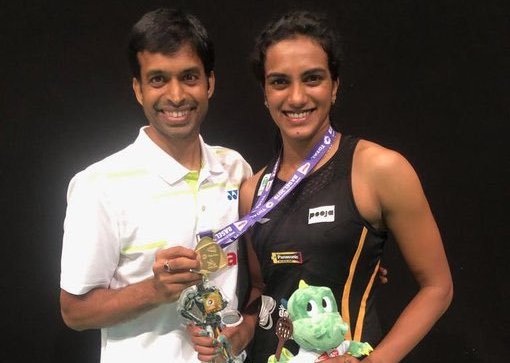
Haven't invested in coaches: Gopichand worried for Indian badminton

India might be celebrating a world champion in PV Sindhu right now but national badminton coach Pullela Gopichand feels there are reasons to be worried about the future as the country has not “invested enough in coaches”.
Sindhu, who is also an Olympic silver-medallist, became India’s first world champion in the sport with a straight-game triumph over Japans Nozomi Okuhara in the summit clash on Sunday (August 25). She returned to a frenzied welcome on Monday night (August 26).
However, Gopichand feels the country needs to wake up to the fact that there aren’t enough coaches to handle the talent that is rising. “…we have not invested enough in coaches,” he said here with Sindhu by his side at a press conference on Tuesday night (August 27).
Also read: Sindhu scripts history, becomes 1st Indian to win World Championship
Gopichand, a Dronacharya awardee, is credited with grooming not just Sindhu but also the trail-blazing Saina Nehwal and K Srikanth among others. “We actually have a big vacuum in terms of producing coaches of quality and its not a training program. Its an ecosystem issue. So, we need to work harder to bridge that gap,” he said.
Gopichand said although there are some foreign coaches like South Korean Kim Ji-Hyun on board, more are needed to deal with the talent that is coming up.
He said more coaches are required to strategise for matches against seasoned international players like Lin Dan. “That we have not achieved. Hopefully, when this generation of people retire, we will actually get these people. If these people get back into coaching, then well actually get back numbers which are required,” he said.
Also read: PM Modi congratulates world champ Sindhu, Rijiju presents ₹10 lakh cheque
“It’s a question without an easy answer and till that time, foreign coaches need to support,” he said.
The former All England champion said the hectic calendar of the sport is also the reason why a larger pool of coaches and physiotherapists is required. “It’s also our own doing. Because we have grown too fast and the infrastructure around us hasn’t grown enough.”
“That’s a big problem we have and we need to sort it out. We need to talk about it and collectively find an answer,” Gopichand said.

